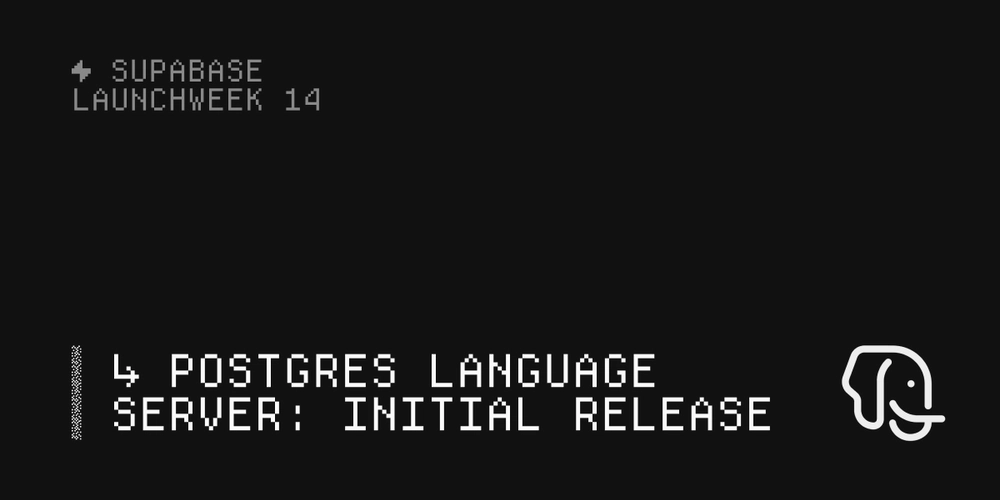Dev
2w
391

Image Credit: Dev
Postgres Language Server: Initial Release
- Postgres Language Server has been released as a LSP implementation for Postgres with tools like autocompletion, syntax error highlighting, type-checking, and a linter.
- It is available through VSCode Extension, Neovim, and CLI installation via GitHub Releases and npm.
- The project faced challenges with the parser due to Postgres' complex syntax, leading to leveraging the libpg_query library for reliable SQL parsing.
- The document lifecycle involves splitting source, identifying and parsing statements, loading schema information, providing diagnostics, and efficiently processing changes and autocompletion.
- Responsiveness in autocompletion is highlighted, utilizing tree-sitter for parsing and SchemaCache for suggestions scoring based on the changed node and context.
- The goal is to create a comprehensive Postgres tooling ecosystem beyond the Language Server, with plans to enhance reliability, expand accessibility, and invite contributions.
- Future improvements include enhancing reliability, extending support to more editors, documenting installation procedures, and welcoming contributions for new features like PL/pgSQL support.
- The project invites users to install the Language Server, report issues, suggest features, and contribute code, with upcoming plans for PL/pgSQL support and Wasm build for pglite.
- The efforts culminate in the aim to make Postgres LSP more accessible and user-friendly, with installation guides, extensions for various editors, and documentation for prospective contributors.
- Community engagement is encouraged through issue reporting, feature suggestions, and code contributions, as the project continues to evolve and improve the Postgres development experience.
- The journey of creating the Postgres Language Server involved tackling challenges, optimizing procedures, and reaching milestones, all with the aim of providing a reliable and efficient SQL development tool.
Read Full Article
23 Likes
For uninterrupted reading, download the app